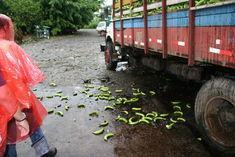
The Fresh Produce Consortium (FPC) is calling on the fresh produce industry to support FareShare as its New Year’s resolution to relieve food poverty in the UK.
FareShare works with companies to identify opportunities to capture food surpluses within the supply chain and redistributes produce to the most disadvantaged people in society.
Nigel Jenney, chief executive of FPC, said: “Food waste is something we all want to reduce throughout the supply chain and we’re encouraging the fresh produce industry to make a difference in 2010 by supporting FareShare.
“FareShare is a successful example of how the fresh produce sector can help disadvantaged people across the UK who don’t always have access to a regular healthy diet of fresh produce.”
Tony Lowe, ceo of FareShare, said: “Food poverty is a big issue in the UK today. Nearly three-fifths of disadvantaged people have gone without a square meal for a day or more in the last year and of those, almost one fifth have gone without for a week or more.”
While the Waste & Resources Action Programme has carried out research to estimate the amount of food waste in the home, there is thought to be a lack of data on how much is wasted in the supply chain before it reaches the consumer.
The FPC is involved in a research project commissioned by WRAP which is developing detailed ‘resource maps’, quantifying food waste and packaging waste, through the fresh produce retail and wholesale supply chain.
The project is led by Cranfield University, working with food and grocery supply chain expert IGD and the FPC, representing the fresh produce industry.



